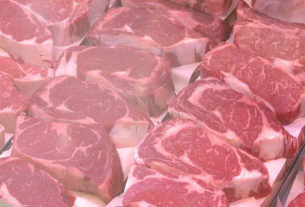Many people worldwide are moving towards a type of diet that includes less meat and more vegetables. Compassion for animals is a primary reason for becoming flexitarians or vegetarians. Also, there are some other reasons, including health benefits, financial benefits, environmental benefits, and others.
Meat production is one of the main reason for global warming. Consumption of more vegetables can boost nutrition, helps in weight management, and decrease the risk of chronic disease. The meat can be costly, hence cutting down meat from your grocery list also reduce the grocery bill.
- The Nutritional Benefits is mentioned below:-
The dietary guidelines around the world suggest that eating five serves of fresh vegetables every day is good for healthy living. Only a few people eat enough vegetables every day in many countries worldwide. Therefore people are missing the minerals, fiber, and vitamins those only vegetables can provide. Compared with the other foods, vegetables are the primary source of minerals and vitamins. The various nutrients found in the vegetables include iron, Vitamin C, Folic Acid, Magnesium, Calcium, Fiber, Potassium, and others. Consumption of five servings of vegetables in a single week will make you feel more energetic due to regulating blood sugar levels and increasing minerals and vitamins.
- Less Weight Gain (Sometimes):-
The switch from eating meat to vegetables during the year should help you stop gaining weight. Consumption of more vegetables will help you reduce the chance of eating junk food. According to the observation, meat-eaters are three times more likely to be overweight than vegetarians and nine times more likely than vegans. Hence eating more vegetables and less meat can help your waistline.
- Reduce Cholesterol:-
Saturated fats increase cholesterol levels in the blood, the majority of saturated fats found in animal meat. An expert says that a vegetarian diet can decrease cholesterol levels quickly.
- Help Your Skin:-
Globally, many people spend their money on skincare and beauty products for looking beautiful skin. A diet rich in zinc, vitamin E, omega-3 fats, and others helps to improve skin conditions like psoriasis, eczema, and others. A dermatologist suggests that patients suffering from acne consume ten fist-sized portions of vegetables. Therefore increasing your vegetable intake and reducing the meat intake helps to reduce acne and other skin problems.
- Reduce The Risk of Chronic Disease:-
Many research studies have been conducted on the health risk associated with meat consumption. As per the research studies, overeating meat has been linked to cancer development. The WHO (World Health Organization) classifies processed meats such as salami, bacon, sausages as a group 1 carcinogen that increases the 18 percent chance of developing rectum and colon cancer. Red meat such as lamb, beef, and pork is classified as group 2A, which probably causes cancer—saturated fat links chronic disease and cognitive disorders including dementia and Alzheimer’s disease.
- It’s Good for the Environment:-
As per the analysis, it observes that ruminant animals such as goats, camels, sheep, and cow contributes to global warming owing to the large quantities of methane they produce in their guts, then these animals emit out into the atmosphere. A sheep can produce 30 liters of methane, and a dairy cow can produce 200 liters of methane in a single day. The methane emission per year from livestock is estimated to be 100 million tons every year, making it the largest human-made methane source after rice grows.
- It’s Good for Your Hip Pocket:-
In most countries across the globe, meat is the more expensive element. The Mediterranean diet considers the healthiest diet. The majority of the residents are in the blue zone regions—those where high percentages of people who live past 100 years of age consume a Mediterranean diet.

Paul is an American-based writer covering Latest business trends. Paul cover Business and media for many news sites. He has been breaking news and writing features on these topics for major publications since 2012. Paul prefers writing about business news keeping science and technology into perspective.



